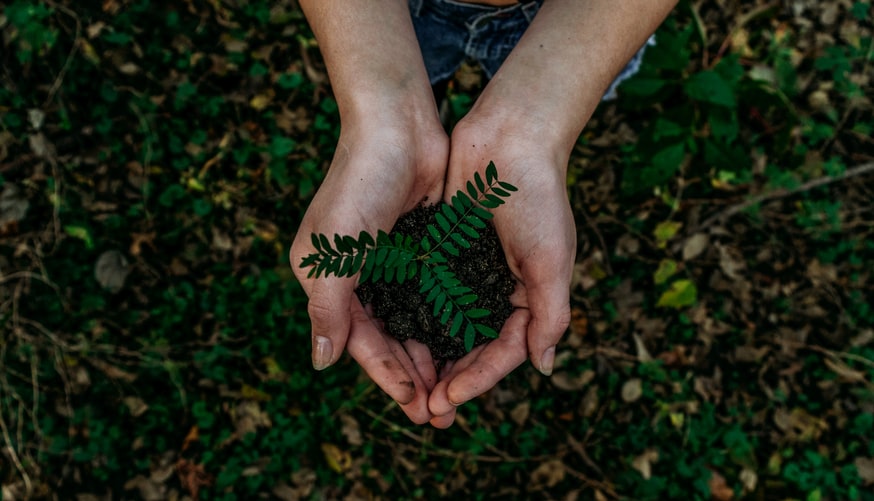
By Hailey Haddon
Ok, Earth, we get it. You’re dying and taking all of us with you. The ice caps are melting, the trees are disappearing, the atmosphere is breaking down. Honestly, I’m tired of all the death-talk. I just want a healthy planet to live on, not one that needs its temperature taken every five seconds, but we can’t afford to be tired. The governments and corporations that have polluted the Earth since the Industrial Revolution have poisoned it. Their oils and gasses, machines and technologies, have depleted the Earth of its resources and us of our home. Unfortunately, regulating governments and corporations tends to be impossible, so what’s to be done?
Well, to start, we can all try to be a bit more sustainable in our daily lives.
Sustainability, by definition, is the ability to live constantly through recycling, reusing, and reducing. This occurs on many different levels. At the highest, governments would regulate their emissions and begin moving towards cleaner energy sources. The next level down consists of corporations realizing their ecological impact and making a conscious effort to curb them, and the last level is the individual working independently to decrease their footprint. As individuals, we all need to focus on our contributions to the climate crisis. Whether it’s changing bad habits or adopting better ones, we all have a part to play. I understand one simple adjustment may not seem significant, but when those changes are multiplied by thousands or even millions, we are able to advance society towards a cleaner future upheld by our sustainable choices.
Sustainability is often misunderstood as an expensive and unattainable lifestyle, and that’s understandable seeing as well-known sustainability brands like Reformation charge upwards of $150 for a pair of jeans, but sustainability doesn’t have to require excess cash. For instance, opting for reusable water bottles can not only limit single-use plastics but help save money by avoiding weekly water bottle purchases. By incorporating these adjustments we build healthier habits not just for ourselves but for all people.
“I believe that finding ways to ensure that we as a global society live sustainably is the top priority if we are to ensure that nature, the species we love so much and we ourselves are able to live in harmony on this planet,” said Karen Ellis, Chief Advisor at The World Wide Fund for Nature.
Achieving harmony between man and nature is a feat too great for one individual alone, but if we can all adopt sustainable habits we can create a movement for green living that could potentially upend the climate crisis. The incorporation of sustainability in our daily lives will provide the pressure that is necessary to force companies into recognizing their own faults. If we as private citizens call for less water-waste in the fashion industry or reduced emissions from manufacturing plants, we can truly make a change for the better. But it starts with us, in our own homes.
New York Times columnist Jeremy Butman made the argument that “We certainly do not sustain nature ‘in itself.’ Rather, we sustain nature as we humans prefer it. More precisely, we preserve the resources needed for human consumption, whether that means energy consumption or aesthetic consumption. In one sense, we preserve nature for industry.”
Butman, along with other sustainability doubters, argues that our need for industrialization has surged beyond our appreciation of nature. While I agree that humans have become industry-reliant, I also believe that our life-source is worth preserving regardless of our intentions. The Earth is an incredibly unique planet, complete with the specific requirements for sustaining life. We have abused its gifts, but to neglect it for the sake of proving a point, that we cannot survive without industry, would be a grave mistake. We have the opportunity to prove that we can do better. Why would we let the planet die simply because we require its resources?
The road to sustainability is long, but we must all take it. We have a moral responsibility to our planet to right our wrongs and ensure our survival, but it has to start with us, in our own homes.